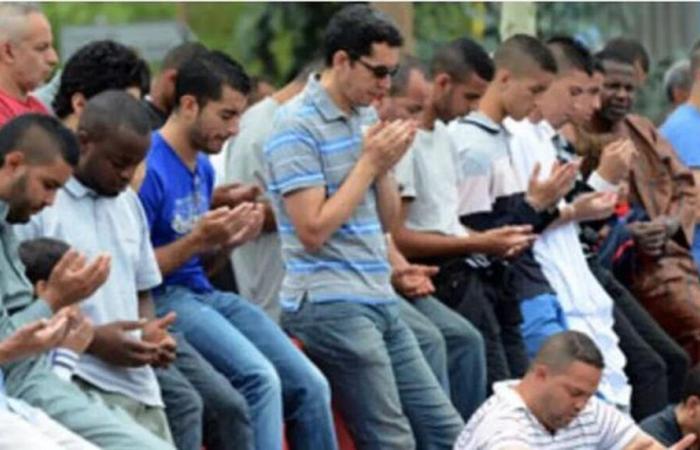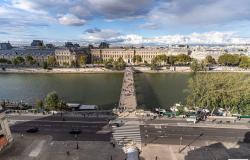
“A qualitative change between January and November 2015.”
In 2015, there were numerous condemnations of these acts in the Muslim community. But several Muslim places of worship had suffered damage. In total, the year ended with a peak of 429 anti-Muslim acts, according to the National Consultative Commission on Human Rights.
France has between five and six million practicing and non-practicing Muslims, according to several studies, which makes Islam the second religion in the country. If 2015 was a “turning point” for Muslims, political scientist Haoues Seniguer, lecturer at Sciences Po Lyon, sees “a qualitative change between January and November 2015”.
The editorial team advises you
Stigma
In January, he said, the socialist government “was cautious in its discourse” by avoiding the term “Islamism”. But the declaration of a state of emergency on November 13, according to him, marked a turning point, because “it was mainly Muslims who were visited by administrative searches”. According to him, the suspicion “increased in 2020” with Emmanuel Macron's speech on separatism, followed by the law on the same subject in July 2021.
“The figure of the Muslim has become this other foreigner, invader, inintegrable. »
The debate on the loss of nationality – under the presidency of François Hollande – was also badly experienced by some bi-national Muslims. And “there has been since the presidential election of 2017 and especially that of 2022” with the candidacy of Éric Zemmour, convicted for anti-Muslim remarks made in 2016, recalls Ghaleb Bencheikh.
During a decade marked by several deadly attacks with jihadist motivations (Nice in 2016, assassinations of teachers Samuel Paty in 2020 and Dominique Bernard in 2023, etc.), “the figure of the Muslim has become this other foreigner, invader, inintegrable, and therefore at the origin of this famous “great replacement””, conspiracy theory agitated by certain far-right politicians, adds the president of the Foundation of Islam of France.
The regular return of subjects linked to the veil – burkini in swimming pools in 2022 in Grenoble, abaya at school in 2023 – is also felt by many as a stigma. Just like the threats weighing on the contracts of several private Muslim high schools, such as Averroes in Lille or al-Kindi near Lyon, whose lawyer Sefen Guez Guez denounces “a double standard”.
« Distance »
Reports have painted a picture of discrimination targeting Muslims, “more frequent than for the rest of the population”, according to an Ifop survey for Dilcrah and the Jean Jaurès Foundation in 2019. A work published in April 2024 on the Muslim diaspora ( “France, you love it but you leave it”, Seuil) also evokes a feeling of “drop of water” of too much felt after the attacks of 2015, that “many of those interviewed mentioned as tipping points in their plan to leave France.
The editorial team advises you
“Today, being a Muslim in France poses a real problem,” sighs the rector of the Grand Mosque of Paris Chems-eddine Hafiz. “We must constantly give pledges,” he adds, pointing to a situation made ever more complicated in the tense context of the conflict between Israel and Hamas.
“Hide your anti-Arab racism”
The president of SOS Racisme Dominique Sopo underlines the intensification since 2015 of an “ethno-religious reading”, in part of the media and the political class, which is “all the more pernicious because it allows mask its anti-Arab racism or its more specific hatred of Muslims behind a speech presenting itself as a defense of secularism.”
“Fortunately, society seems much more distant from these phenomena than the elites,” he adds. The younger generations, in particular, more qualified and accustomed to a diverse environment, “have less hostility towards Muslims or Islam than that of older generations”, according to him.





